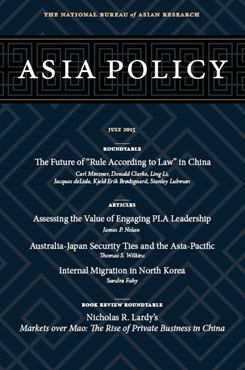Why Can't We Be Friends?
Assessing the Operational Value of Engaging PLA Leadership
This article examines if trust can be established between U.S. and Chinese military leaders and what operational value can be derived from those personal relationships.
EXECUTIVE SUMMARY
MAIN ARGUMENT
U.S. military flag officer/general officer (FOGO) engagement with counterparts from the People’s Liberation Army (PLA) is valuable for strengthening both military-to-military and diplomatic relations. Such engagement is not valuable, however, because it builds trust-based relations or yields significant operational value. For the purpose of this study, operational value is defined as limited crisis resolution, greater interoperability, and increased safety of operations over a three- to four-year time frame. Out of eleven retired three- and four-star FOGOs with active duty experience engaging with the PLA who were interviewed for this study, none had established trust with their active duty counterparts or generated operational value as a result of engagement. Instead, this study finds that FOGO personal relations have minimal operational value due to numerous individual barriers that prevent the building of trust between counterparts and institutional barriers that prevent the translation of FOGO relationships into operational value.
POLICY IMPLICATIONS
- U.S. expectations of large operational returns on significant resources invested in FOGO engagement with PLA counterparts may prove ill-founded if these expectations are not grounded in an understanding of the individual and institutional barriers that exist to prevent those relationships from yielding tangible operational value.
- If the U.S. were to adopt a misplaced faith in the value of personal relationships with PLA counterparts as a primary means to de-escalate future crises, U.S. policymakers would be placed at a disadvantage for quickly or effectively resolving future crises with China.
NOTE: The author would like to thank those retired officers and experts who generously took the time to be interviewed for this study, as well as Ken Allen and several anonymous reviewers who provided valuable inputs to the final product. The author is above all grateful to Scott Harold of the RAND Corporation and Georgetown University for his continued guidance and mentorship. The views reflected here are the author’s alone and do not necessarily represent the views of the aforementioned or the U.S. government.
About Asia Policy
Asia Policy is a peer-reviewed scholarly journal presenting policy-relevant academic research on the Asia-Pacific that draws clear and concise conclusions useful to today’s policymakers. Asia Policy is published quarterly in January, April, July, and October and accepts submissions on a rolling basis. Learn more


